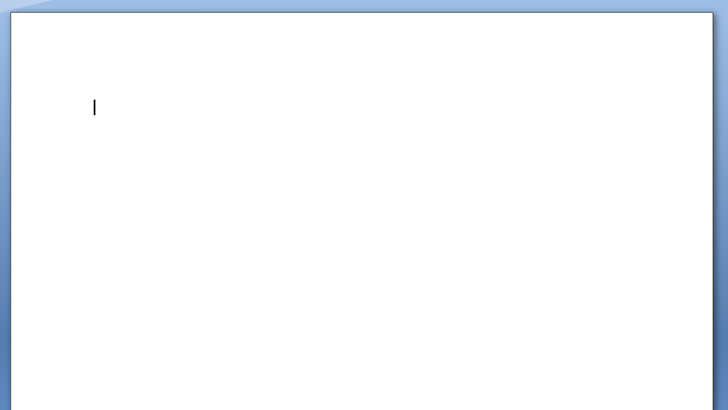Getting Your Writing Done by Embracing Mediocrity
Let me start by telling you what doesn’t work for me: the daily writing schedule. I wish I could set aside time every day to write, as historian Marybeth Gasman suggests in her Chronicle of Higher Education essay. I kept to that daily schedule when I was a graduate student before I had children, and then again when I was on sabbatical and was freed from teaching and administrative responsibilities. It really is terrific. However, in the midst of juggling the multiple and sometimes conflicting demands of family members, students, colleagues, and administrators, the goal of daily writing became a source of frustration and letdown for me.
So I learned to do the next best thing: embrace mediocrity.
Here’s how this works for me.
Each week, I decide on the writing project that’s going to consume every free moment I have for that week. Then, whenever I know that I’m going to have fifteen minutes or so between commitments, I look up a journal article, read news stories, write e-mails to friends, or read a book—all on my chosen topic. I also look at my schedule and find six hours in a row for actual writing. I usually have to come to terms with the fact that I’m going to have to give up something in order to carve out even that much time. So, here’s what I do: I decide what to be mediocre at for that week. I find it an oddly empowering habit of mind to make that choice: maybe my grading will be late or my kids will eat takeout food every night or my teaching will be off due to lack of sleep or I’ll be late in responding to e-mails. But, I reason, it’s only for a week, and next week I can choose something else for mediocrity.
For the whole week leading up to my six-hour writing block, whenever possible I remind myself that I am an author who is working on my chosen topic, because that makes me feel like I’m on my way to excellence (which is better than feeling mediocre). And then at the last minute I gear up for my writing block by getting my books and notes in order on my desk, opening the file I was last working on related to the project, and closing down everything else (including e-mail alerts, Twitter, and other things I was working on) so that I can actually write.
Then it’s time to embrace mediocrity again.
I let go of the idea that this particular piece I’m writing may be my best ever, or a truly unique contribution, or my legacy to my field. It’s time to just get it done. It’s also time to let go of the idea that it has to be written in an orderly way. I might draft the abstract, or outline the literature review, or write a few paragraphs on something that seems highly relevant, or maybe I’ll write out a few points for discussion—whatever seems easiest at the moment is what I do first. When I get stuck, I go to the next easiest thing to write. If something’s not working, I try cutting it out, labeling it, and filing it so that I can find it again if I change my mind. Then I keep going. In other words, I aim to reduce the pain and strain in any way possible throughout my whole writing time. If I have to leave my work because I’m out of time, I try to do so in mid-sentence with a lot of half-baked ideas and ellipses to remind me of what I was thinking about so that I can pick it up easily the next time. Usually I have to write out those last thoughts while I’m standing up, and I’m often saying something like, “I’ll be right there” or “just a minute” to someone as I’m typing furiously. Once again, aiming for mediocrity.
And then, just before I’m done with what feels like a very drafty first draft, I e-mail the whole mediocre mess to some poor unsuspecting friend. Sometimes my friend will read it and respond in a timely way, but I find that doesn’t matter (I tell my friend, “read this when you have time”). Just the act of sending it out gives me that final ability to see the piece through someone else’s eyes the next day, which lets me figure out what I really need to change in order to send it to someone I don’t know. And then within one day I force myself to send it out for review, whether it’s ready or not, mediocrity and all.
I have definitely gotten my share of rejections, but over the years, I’ve also gotten a number of acceptances. And even the rejections are okay, because I like to opt for the easy route—and it’s much easier to reedit a mostly finished mediocre piece than it is to start something new. And although there are plenty of my pieces that I think remained pretty mediocre, there were others that, over time, I actually came to think of as pretty good.
So embrace mediocrity! You may find that it’s your own personal route to some pretty good writing.
Lynn Schofield Clark is professor of media, film, and journalism studies and member of the religion and social change PhD faculty at the University of Denver, former cochair of AAR’s Media, Religion and Culture Group, and author of The Parent App: Understanding Families in a Digital Age (Oxford University Press, 2012), From Angels to Aliens: Teenagers, the Media, and the Supernatural (Oxford University Press, 2005), and editor of Religion, Media, and the Marketplace (Rutgers Press, 2007).






